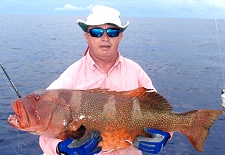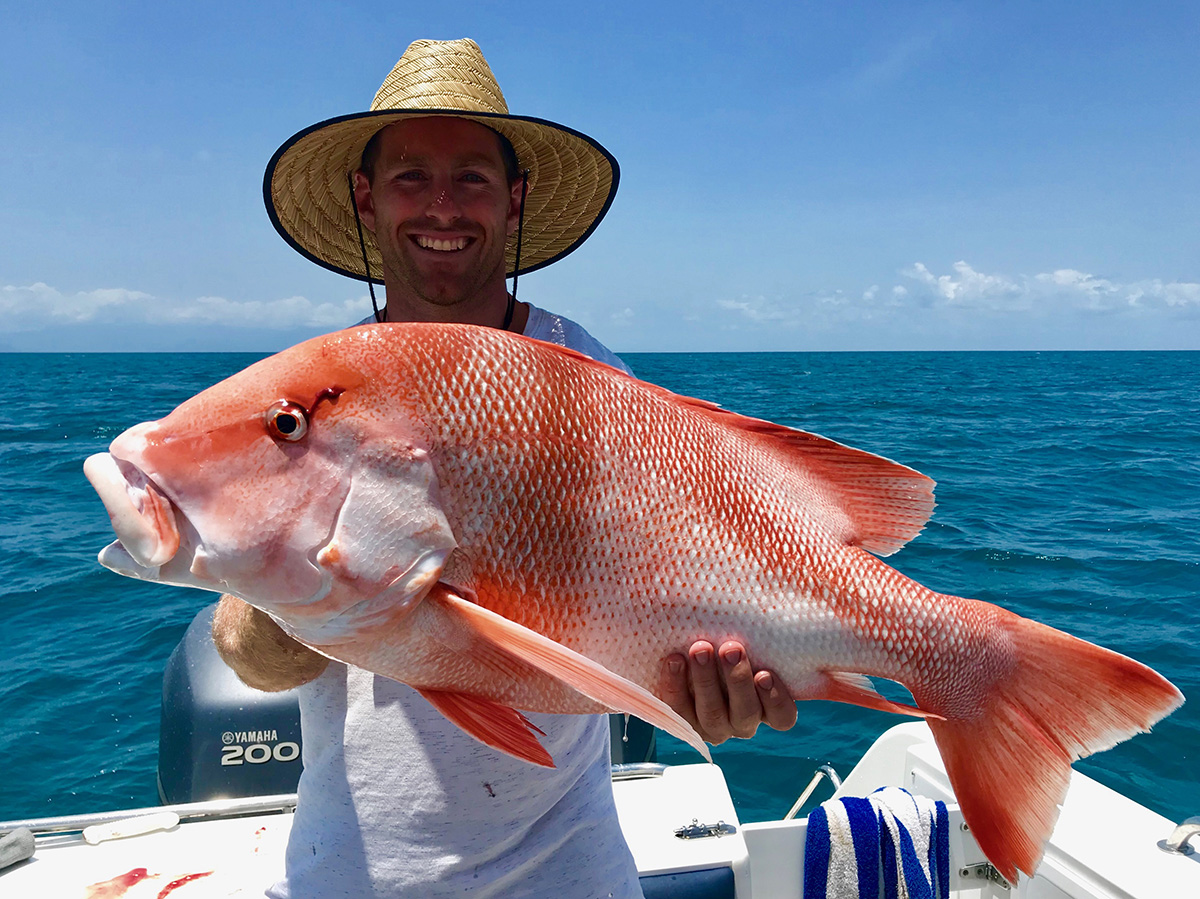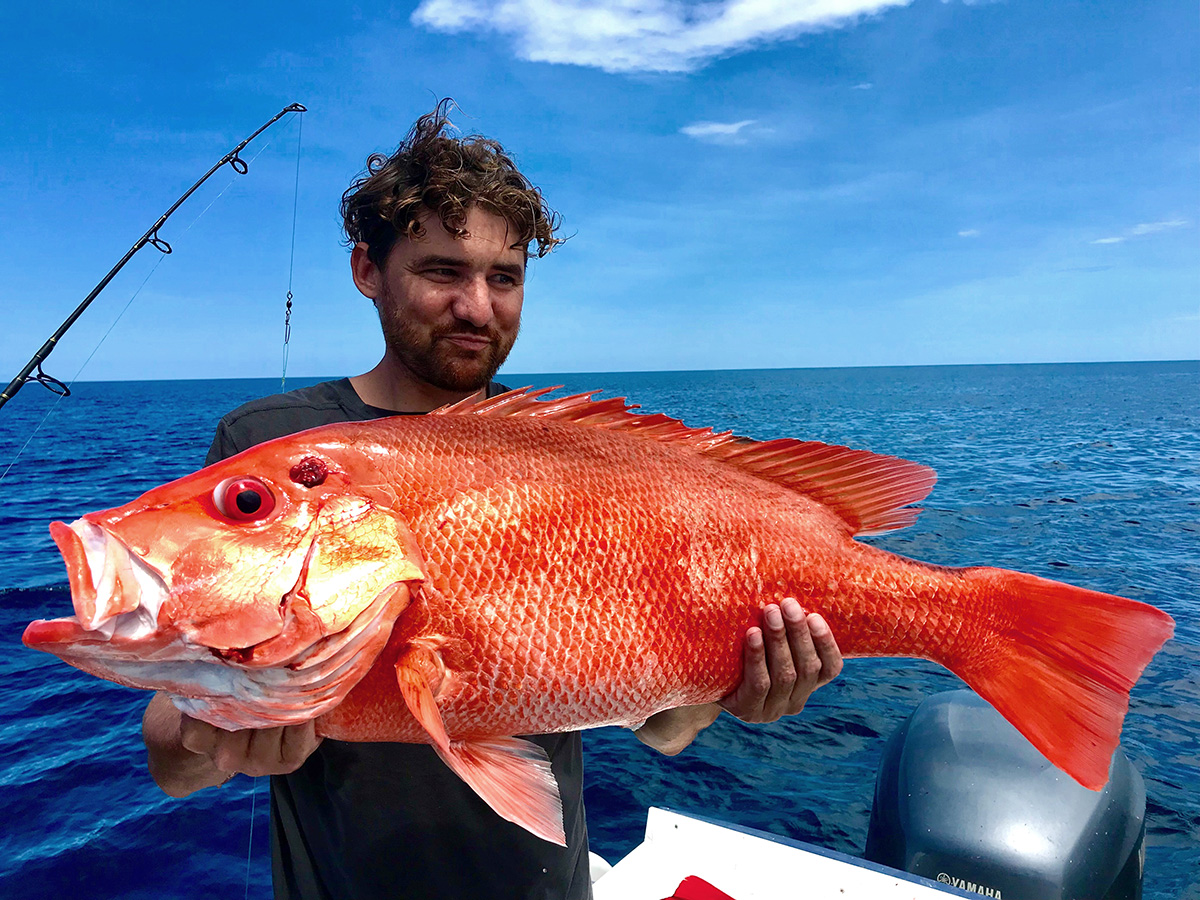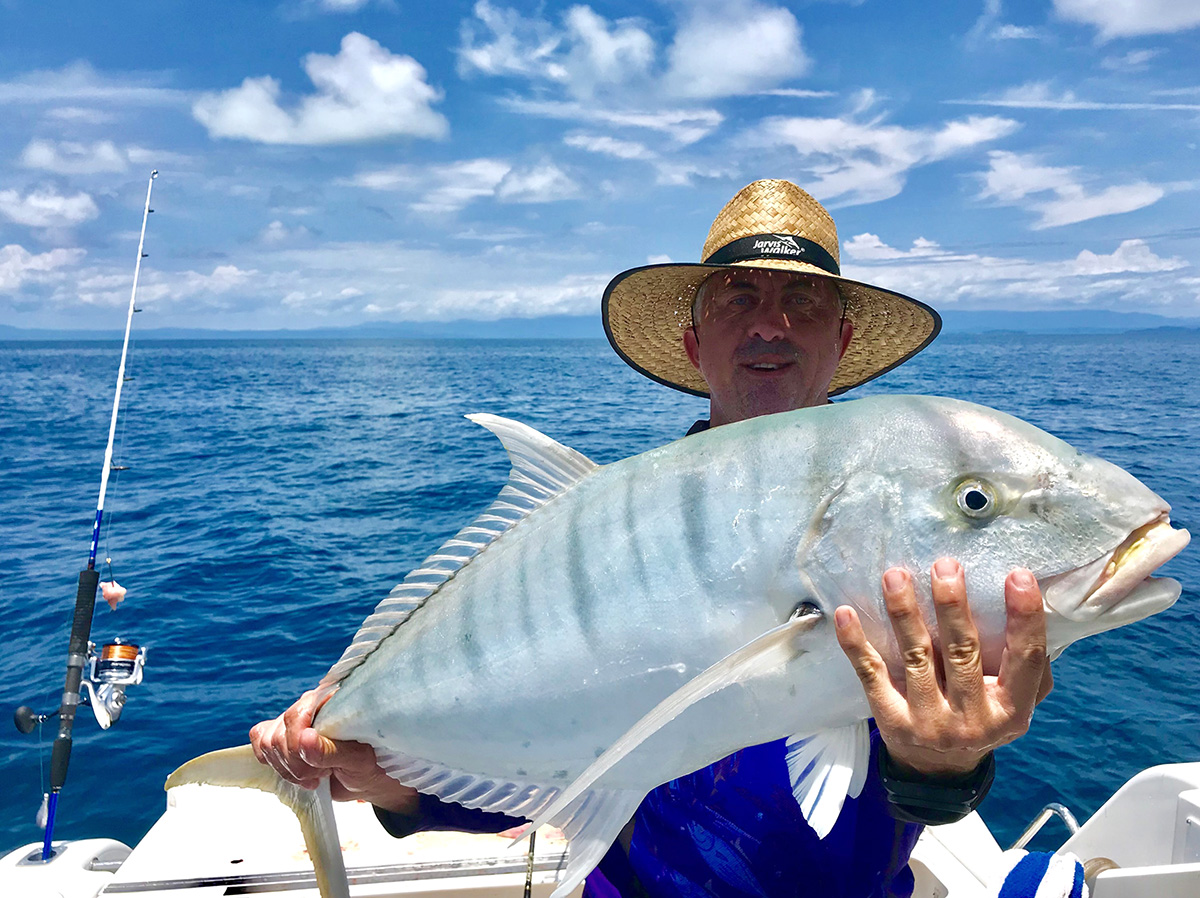Reef Fishing target species
Reef Fishing
As with all fish species please check the fishing regulations in your local area for size and bag limits. It is your responsibility as an angler.
For more information visit www.qld.gov.au

Did you know?
- Most popular reef species to capture on the Great Barrier Reef
- Inhabit the maze of reef systems and caught all year round
- Mostly caught by bait fishing methods
- They fight really hard when they hook-up
- Coral Trout can grow to 20kg
- Famous for its firm white flesh and mild flavour
Coral Trout
This species is considered as our most commonly known and most popular reef species to capture on the Great Barrier Reef. They inhabit the maze of reef systems dotted along our coastline and are normally caught by bait fishing methods. They are however caught at times using poppers and lures cast around shallow reef bommies.
They fight really hard when they hook-up trying to surge back into their cave amongst the reef. This is when the angler must stop them in their tracks, turn their head and persuade them to the surface. This first impact is very hard hitting and many an angler has lost this battle for this prized fish. Once the fish has been prevented from diving back into the reef they tend to come to the surface a lot easier.
Coral Trout can grow to 20kg and can be caught all year round. Their firm white flesh and mild flavour is famous worldwide. Minimum size - 38cm.

Did you know?
- Ultimate reef fishing capture
- Extremely slow growing
- Inhabit a variety of areas on the reef
- Caught using bait fishing methods
- Pull really hard and offer surging runs
- Fighting capabilities are legendary
- Can grow up to 20kg
- Beautiful firm flesh is considered cream of the crop
- Minimum size 55cm
Red Emperor
The red emperor is considered by most as the ultimate reef fishing capture. These extremely slow growing fish take over 5 years before they can reproduce successfully and therefore have a large minimum size limit. They inhabit a variety of areas on the reef but the bigger models seem to prefer the rubbly ground and bommies in deep water. They are caught using bait fishing methods for this reason.
With a huge head and broad shoulders these fish pack a serious punch once hooked. They pull really hard and offer surging runs. These fish will fight for every inch through the water column until it is boated. Their fighting capabilities are legendary.
Red emperor can grow to 20kg and their beautiful firm flesh is considered the cream of the crop of all reef fishing species by many. Minimum size 55cm.

Did you know?
- Also known as sea perch
- Caught in the small mouth and large mouth variety
- Found in large schools in the deep waters with rubbly ground
Nannygai
Also known as sea perch these fish can be caught in the small mouth and large mouth variety. The small mouth is generally smaller in size and a bit slimmer, whilst the large mouth grow much bigger and bulkier with a larger head. They are generally found in large schools in the deep waters with rubbly ground or near a grouping of deep bommies. For this reason they are mostly caught using bait fishing methods and can be enticed using lures in a jigging motion.
These fish offer great angling fighting stubbornly once hooked. As they come through the water column the bigger species will kick and punch all the way to the boat. Small mouth grow to 8kg whilst the large mouth will grow to 20kg. Their flesh is firm and has excellent eating qualities. Minimum size 40cm.

Did you know?
- Are nomadic
- More common species include gold spot trevally, tea-leaf trevally, golden trevally
- Caught by bait fishing, trolling, casting or jigging
- Are true fighters in all facets
- Considered highly as a table fish when eaten fresh
Trevally
There are many varieties of trevally which travel the Great Barrier Reef system in schools looking for schools of bait to feed on. They are nomadic and can turn up unexpectedly turning a mild fishing session into a wild fishing session. They are true fighters in all facets and offer great angling opportunities. Our more common species you come across whilst reef fishing include gold spot trevally, tea-leaf trevally, golden trevally and bludger trevally .
Trevally can be caught by bait fishing, trolling, casting or jigging as they tend to work the bait schools the entire water column. They often are encountered whilst targeting the same grounds as the nannygai and turn up as a commendable by-catch.
The golden, gold spot and tea-leaf species are considered highly as a table fish when eaten fresh.


